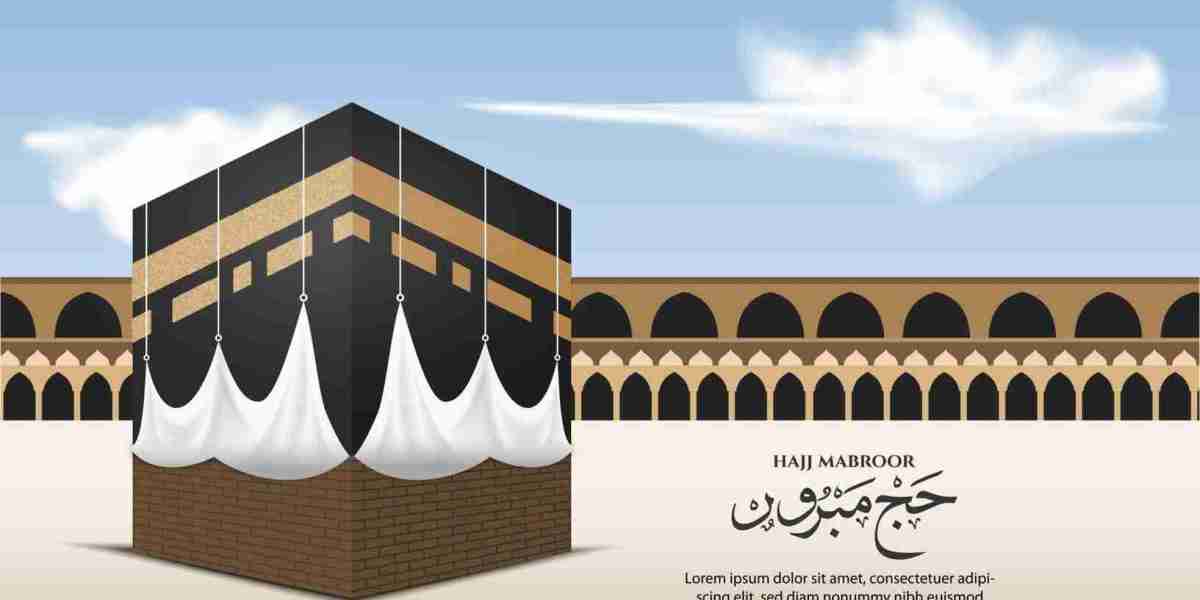What is Hajj?
Hajj is a religious duty that every Muslim must perform, provided they meet the necessary conditions such as financial capability, physical health, and the ability to travel. The pilgrimage takes place annually during the Islamic month of Dhu al-Hijjah, specifically between the 8th and 12th days. Pilgrims follow a series of rituals that commemorate the actions of Prophet Ibrahim (Abraham) and his family, who are considered key figures in Islam.
The journey is an intense expression of devotion and obedience to Allah (God). It involves acts of worship, physical exertion, and an emotional connection to the shared history of the Islamic faith. Pilgrims from all over the world come together to perform the same rituals, demonstrating unity and equality before Allah.
The Spiritual Significance of Hajj
For Muslims, Hajj is not just a journey of physical distance, but one of deep spiritual significance. It is seen as an opportunity to cleanse oneself of past sins and to renew one’s faith in Allah. The journey is marked by acts of worship, reflection, and prayer, and it serves as a powerful reminder of the ultimate purpose of life – submission to Allah’s will.
The rituals of Hajj symbolize the stages of a Muslim’s relationship with God, from repentance and purification to gratitude and surrender. Pilgrims often seek to return home spiritually renewed, with a sense of inner peace and closeness to Allah. Hajj is a time of self-reflection, where Muslims leave behind the distractions of daily life and focus solely on their relationship with their Creator.
Key Rituals of Hajj
The pilgrimage to Mecca involves a series of rituals that must be performed in a specific order. These rituals are deeply rooted in the history of Islam and have been practiced for centuries by millions of Muslims. Some of the most important rituals include:
Ihram: The journey begins with the state of Ihram, a spiritual condition in which pilgrims wear simple white garments. This symbolizes purity and equality before Allah. It also marks the beginning of the pilgrimage and the intention to perform the rituals of Hajj with sincerity.
Tawaf: Upon arrival in Mecca, pilgrims perform Tawaf, which involves walking seven times around the Kaaba, the most sacred structure in Islam. This act represents the unity of believers in the worship of the One God.
Sa’i: After Tawaf, pilgrims perform Sa’i, which involves walking seven times between the hills of Safa and Marwah. This ritual commemorates the desperate search for water by Hajar, the wife of Prophet Ibrahim, for her son Isma'il.
Standing at Arafat: One of the most important rituals of Hajj is standing in prayer at the plain of Arafat on the 9th of Dhu al-Hijjah. This is the climax of the pilgrimage and is considered the most spiritually significant day of Hajj. Pilgrims seek forgiveness for their sins and reflect on their relationship with Allah.
Ramy al-Jamarat: Pilgrims throw pebbles at three pillars, symbolizing the rejection of Satan’s temptations. This ritual commemorates the moment when Prophet Ibrahim, under the command of Allah, rejected the devil’s attempts to dissuade him from his sacrifice.
Qurbani: The act of sacrificing an animal, typically a sheep, goat, or cow, is performed to commemorate the willingness of Prophet Ibrahim to sacrifice his son Isma'il in obedience to Allah’s command. This sacrifice is a reminder of the importance of submission to Allah’s will.
Tawaf al-Ifadah: After completing the rites at Mina, pilgrims return to Mecca to perform another Tawaf around the Kaaba, signifying the completion of the pilgrimage.
The Impact of Hajj on Muslims
The impact of Hajj on a Muslim’s life is profound. The pilgrimage provides an opportunity for deep introspection, repentance, and spiritual growth. For many, it marks the beginning of a renewed commitment to the teachings of Islam. The physical challenges of the pilgrimage, including the long days of walking and the intense heat, serve as a reminder of the transient nature of life and the importance of perseverance in the worship of Allah.
Hajj also fosters a sense of unity among Muslims, as pilgrims from diverse backgrounds come together to perform the same rituals. This collective experience helps to strengthen the bonds of brotherhood and sisterhood within the global Muslim community.
The Role of Hajj in Islamic History
Hajj is deeply embedded in the history of Islam. The roots of the pilgrimage date back to the time of Prophet Ibrahim and his family. The Kaaba, which is at the center of the pilgrimage, is believed to have been built by Prophet Ibrahim and his son Isma'il as a place of worship for Allah. The rituals of Hajj commemorate their devotion and sacrifices, highlighting the timeless connection between the past and present.
Conclusion
Hajj is a profound spiritual journey that symbolizes devotion, obedience, and unity. It is a powerful reminder of the importance of submitting to Allah’s will and seeking forgiveness for past mistakes. For those who have the opportunity to undertake the pilgrimage, Hajj is truly a life-changing experience that brings Muslims closer to Allah and to each other. Whether through prayer, reflection, or the shared experience of the rituals, Hajj leaves a lasting impact on the hearts and minds of those who participate. Through resources like those provided by Manshurat Publishers, individuals can deepen their understanding of this sacred journey and prepare for the spiritual transformation that Hajj offers.








